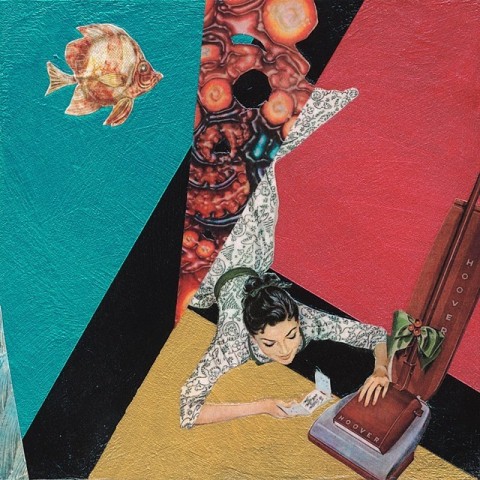
The following essay is part of SmokeLong Quarterly’s Why Flash Fiction? series in which flash fiction writers share why they write and read flash fiction. If you’d like to share your own experience, please see our Submittable form for Blog Essays.
_____________________
By Rebecca Turkewitz
I will never forget the first time I read Gwen E. Kirby’s flash piece “Shit Cassandra Saw That She Didn’t Tell the Trojans Because at that Point Fuck Them Anyway.” I had recently graduated from my MFA program, was working full-time as a high school teacher, and was convinced that my writing was going to stagnate now that I wasn’t a student. Kirby’s piece was a revelation. The story is told in the form of an inventory, listing glimpses of the future seen by the clairvoyant but disbelieved Cassandra. After I finished the story, I read it again, and then again. Every line was an explosion of light. I wanted to understand how Kirby had written something so propulsive, so moving, so rich with questions and answers, and so utterly original, and how she’d managed to fit such a profound narrative into 918 words.
I thought back to other flash pieces I’d loved. Julio Cortázar’s fabulous, twisting “Continuity of Parks,” which takes on the structure of a Mobius strip and ends up depositing the reader, unexpectedly, back at the beginning; Italo Calvino’s impossible, fabulist travelogue and novel-in-flash Invisible Cities; Sejal Shah’s “Curriculum,” which takes on the form of a peculiar course of studies; Carmen Maria Machado’s tiny crime story, “Mary When You Follow Her,” which is one long and breathless sentence. All of these pieces feel fuller and larger than their scant word count should allow, all of them are electric with potential, and all of them experiment with form in a way that I find thrilling.
Part of the magic of flash is that even the most unusual or experimental structures don’t feel gimmicky or disorienting. They don’t have time to grow tiresome. What could be restrictive or feel repetitive in a longer piece can work beautifully in flash. The constraint of the word limit opens up so many possibilities for originality and for strangeness, and I am a person who loves the strange.
Soon after I read Kirby’s piece, I started writing my own flash fiction. Learning the new form helped me shake off the notion that I wasn’t going to continue growing as a writer after graduate school. I found flash to be surprisingly freeing and surprisingly fun, at a time when my writing practice was threaded with insecurity and doubt. I took more creative risks, not only because I didn’t have to worry about how to sustain an unusual structure or premise for a longer piece, but also because I didn’t have as much anxiety about whether a story would be successful or not. If the story didn’t work, it wasn’t agonizing to relegate it to my folder of failed story attempts. I wrote whole drafts in one weekend. I started drafts during my prep period at school. I wrote along with my students when I assigned them prompts.
And my flash was weirder than my longer fiction, more inventive and daring. I wrote a crime story presented entirely as a hypothetical scenario. I wrote a piece in the voice of a ghost teaching her newly dead great granddaughter how to properly haunt. I wrote a guide instructing queer girls on how to read fairy tales. I wrote three different pieces in the third person plural, which was a perspective I’d tried and failed to tackle in the short story form several times before.
Each flash piece I wrote went somewhere I did not expect. I could play with language and perspective and form. I could start fresh if the project didn’t work. I could take a chance on whatever weird idea was pulling at my attention. Writing started to feel joyful again.
I’ve always loved the word “flash” as a descriptor for this form. The best flash is like a burst of light, a brief and striking moment of luminance. The reader sees what they can while the world of the story is lit up, and then they are invited to fill in the rest themselves, figuring out what is in the shadowed corners. The glimpse of the setting, of the characters, of the fable, of the conflict, of the instruction manual, or of the inventory may not be the whole story, but it is enough.
Kirby’s piece was my invitation into the form. If you haven’t attempted it yet, let this be yours.
______________________________
 Rebecca Turkewitz is a writer and high school teacher living in Portland, Maine. Her debut collection of stories, Here in the Night, is forthcoming from Black Lawrence Press this July. Her fiction and humor have appeared or are forthcoming in SmokeLong Quarterly, Best Microfiction 2023, The Normal School, The Masters Review, Electric Literature, The New Yorker’s Shouts, and elsewhere.
Rebecca Turkewitz is a writer and high school teacher living in Portland, Maine. Her debut collection of stories, Here in the Night, is forthcoming from Black Lawrence Press this July. Her fiction and humor have appeared or are forthcoming in SmokeLong Quarterly, Best Microfiction 2023, The Normal School, The Masters Review, Electric Literature, The New Yorker’s Shouts, and elsewhere.

 Included in the price of SmokeLong Fitness:
Included in the price of SmokeLong Fitness: